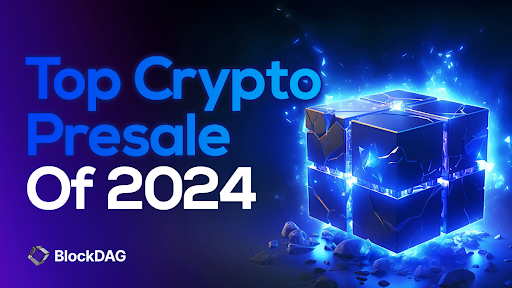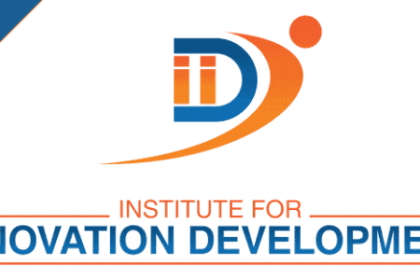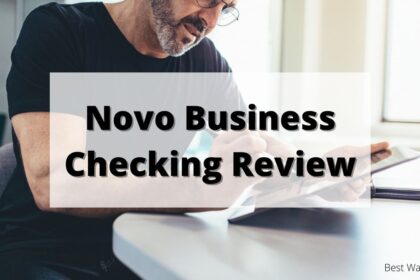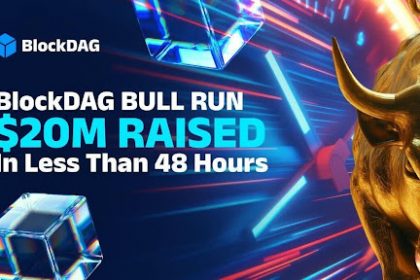Crypto enthusiasts continually search for the next significant breakthrough. With blockchain technology progressing, several projects under $0.50 have shown promise for remarkable growth.
In this article, we will examine five cryptos priced below $0.50 that could deliver substantial value. From novel blockchain architectures to increased scalability, these projects possess unique attributes that might set them on a path similar to Bitcoin’s.
1. BlockDAG (BDAG): A Revolutionary DAG-Based Architecture
At a presale price of $0.0234, BlockDAG (BDAG) harnesses the power of Directed Acyclic Graph (DAG) technology, offering a modern approach that allows for high-volume transactions at accelerated speeds. This structure is well-suited for various applications from decentralized finance (DeFi) to non-fungible tokens (NFTs). BlockDAG could revolutionize the field with its potential to solve congestion problems that even established blockchains like Ethereum encounter.
BlockDAG’s appeal was confirmed when it successfully raised over $150 million during its presale, indicating robust interest. The launch of its testnet gave developers and users a first-hand look at its capabilities, including its integration with Blockchain Explorer and MetaMask Wallet, and the functionality of its smart contracts. With its focus on scalability and efficiency, BlockDAG is setting the stage to be a major player in the next evolution of blockchain technology.
Key Features:
- High-speed transactions using DAG technology.
- Impressive presale success with significant funding.
- Scalability makes it ideal for dApps, DeFi, and NFTs.
2. TRON (TRX): A Pioneering Platform for Digital Creatives
Priced around $0.19, TRON is reshaping the internet into a decentralized hub for digital content exchange. Its high processing capability and low-cost transactions make it a favorite among developers, especially those focusing on gaming and multimedia applications. TRON’s scalability ensures that users can produce and share content independently of centralized authorities.
Under the leadership of CEO Justin Sun, TRON has expanded through strategic acquisitions and partnerships, enhancing its functionality and market presence. Its commitment to decentralized content distribution positions it as a promising candidate in blockchain technology, particularly for entertainment-based applications.
Key Features:
- Fast transactions with minimal fees.
- Dominant role in gaming and entertainment.
- The vibrant community of developers and users.
3. Stellar (XLM): Transforming Global Payment Systems
Currently priced around $0.15, Stellar specializes in facilitating swift, cost-effective international payments, targeting regions underserved by traditional banking. Its partnerships with major financial entities, including IBM, have not only enhanced its reputation but also promoted widespread adoption. Stellar’s network allows financial institutions to provide their customers with economical options for international money transfers.
Stellar is committed to improving global financial connectivity. Its platform is straightforward and, coupled with significant collaborations, supports its vision of integrating global financial systems. The ongoing development of stablecoins on its network could widen its impact, offering stable financial solutions in economically volatile regions.
Key Features:
- Instantaneous, affordable cross-border payments.
- Strong alliances with leading financial institutions.
- Support for stablecoins to enhance financial stability.
4. VeChain (VET): Transforming How We Track Goods
Priced around $0.02, VeChain introduces a powerful solution for enhancing supply chain management through blockchain technology integrated with the Internet of Things (IoT). This combination enables real-time tracking of products from their source to consumers, significantly reducing the chances of counterfeit products and ensuring quality assurance. With successful collaborations like those with Walmart China and BMW, VeChain proves that its technology has practical, effective applications.
The flexibility of the VeChainThor blockchain enables businesses to develop tailored solutions, such as decentralized apps for monitoring product data. VeChain’s role in transforming supply chains could lead to broader market penetration and adoption.
Key Features:
- Real-world applications in managing supply chains.
- Solid partnerships with global corporations.
- Adaptable blockchain technology tailored for specific industry needs.
5. Hedera Hashgraph (HBAR): Pioneering Fast, Fair, and Secure Transactions
With a current price of around $0.08, Hedera Hashgraph sets itself apart by using a proprietary DAG-based algorithm for reaching consensus, which enables quicker transactions and lower costs than traditional blockchains. This efficiency makes it an appealing platform for enterprises and developers alike. Governed by a council that includes renowned corporations like Google, IBM, and Boeing, Hedera offers a level of trust and credibility unique in the crypto space.
Hedera’s advancements in decentralized applications and tokenization could make it the platform of choice for business-oriented use cases. Its capabilities are particularly suited for sectors that require robust, frequent data exchanges such as logistics, healthcare, and finance.
Key Features:
- Advanced DAG-based approach to consensus.
- Enhanced transaction speed with cost-efficiency.
- Governance by a prestigious council of multinational firms.
Conclusion
As the cryptocurrency market evolves, it presents varied opportunities through emerging projects priced under $0.50. Each project, with its distinct advantages, aims to carve out significant roles within the blockchain arena. BlockDAG, for example, with its scalable architecture and successful initial funding, shows promising potential for significant impact and returns.








